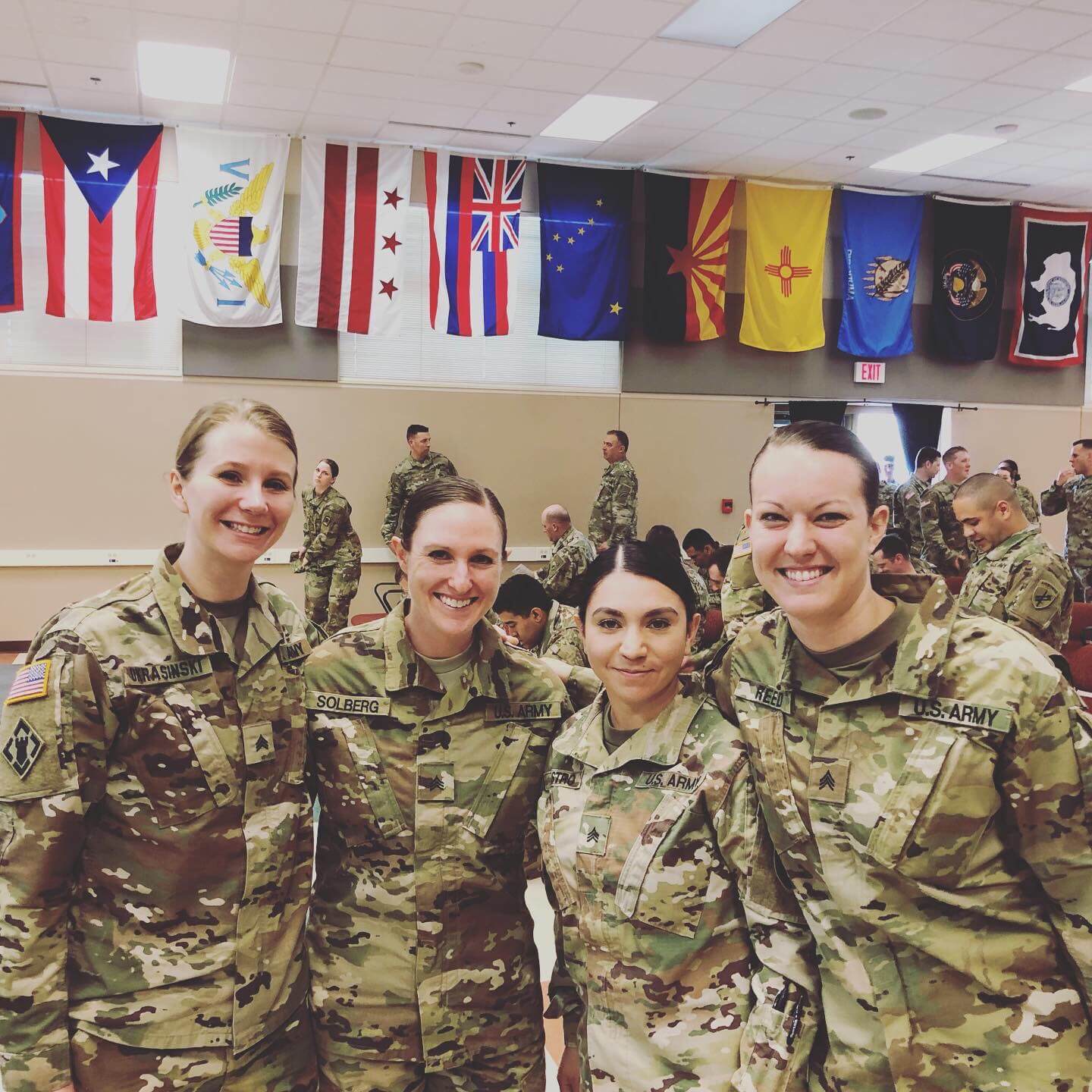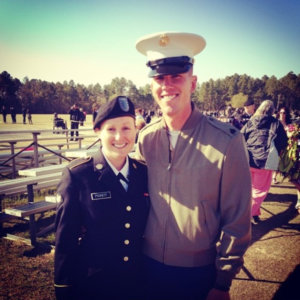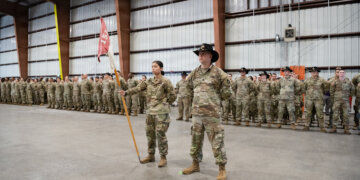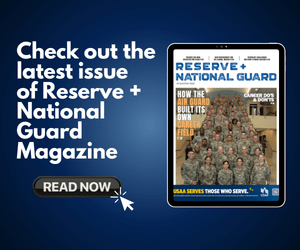As reservists, we wear many different hats — not only are we service members, but we also have jobs outside of the military. Some of us are parents or caregivers, or even military spouses ourselves. One of the biggest challenges we face is how to balance the needs of the military with the needs of our civilian careers and our own families.
And as a female service member and mom, I feel additional pressure to juggle it all. There have been many times when I’ve been at a crossroads in my Army career — do I get out? Do I stay in? How do I make it work when my family needs me, but I also want to be able to serve my country?
The answer is different for everyone, but for the time being, mine is the Individual Ready Reserve (IRR).
I first started looking into the IRR right after my husband, an active-duty Marine officer, received orders that would take him away from our family for nearly a year. We had two young children, and I knew I wouldn’t be able to count on his help or support during my weekend battle assemblies or annual training. With nine years of service as a civil affairs specialist under my belt, I felt I had two choices: suck it up and stay in, knowing I’d be stressed, exhausted and unable to succeed as either a soldier or a mom for the next year, or just call it quits.

I wrestled for months with the decision, going back and forth before I finally approached my platoon sergeant for his advice. He surprised me by suggesting I “take a knee” by reenlisting into the Individual Ready Reserve.
“The Army will be just fine without you,” he promised me, “but your family won’t.”
The more I talked to others in my unit about it, the more I realized how many of them had also taken advantage of time in the IRR to get through important life events or transitions. Whether it was a demanding civilian job, unexpected emergencies or family obligations, there are many valid and justifiable reasons to take a break from military service, even just for a bit.
Individuals assigned to the IRR are not obligated to drill, conduct annual training or participate in any military activities (except for periodic Muster activities) until ordered by presidential authority.
RELATED: OPINION: No, Tom Brady, the NFL season is not like a military deployment
Reenlisting into the IRR meant I didn’t have to decide right then and there if I wanted to continue my military career — I could put it on pause, focus 100% on taking care of my family while my husband was gone, then re-evaluate once he returned.
I took comfort in knowing if I wanted to come back in, I could easily transfer into a Troop-Program Unit (TPU), Active-Guard Reserve (AGR) or Individual Mobilization Augmentee (IMA) position.
Obviously, there are downsides to this status — I’m not paid like I would be as a TPU soldier, although I was compensated for the Personnel Accountability Muster I completed last year. I’m also not eligible for any TRICARE medical benefits (fortunately, I’m covered under my husband), and I’m missing out on the opportunity to contribute to my thrift-savings plan and have the government match a percentage of my contributions.

That said, choosing to spend time in the IRR has hands down been the best decision for me, and it’s allowed me to dictate how involved or uninvolved I want to be in the military right now. I can continue my service, still earn points toward a “good year,” attend schools for professional military education, accept assignments if desired and fly Space Available.
If needed, I can also get an ID card that allows access to various on-post facilities like the commissary, PX and MWR sites.
I’ll be honest — I’m still not certain what my future in the military will look like, but I’m so thankful for the flexibility that being in the IRR has allowed me. I wonder how many other military moms like me would have stayed in longer if they had known they could take a break at certain points to prioritize their families.
Individual Ready Reserve service is an underutilized retention tool, and because I’ve been able to “take a knee” without being penalized or having to separate completely, I’m much more likely to come back into the reserves at some point in the future. I’d call that a win/win for me and the Army.
Read comments


































